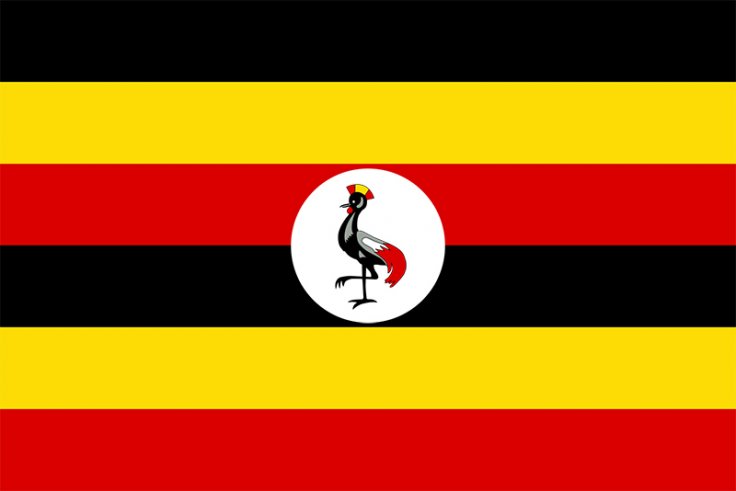
In September, the Beijing-based China-Africa Business Council (CABC) released a report detailing the size, pattern, and future trends of Chinese companies' investment in Africa.
The CABC report reveals that China has become Africa's fourth most important bilateral investor following the United States, France, and the United Kingdom, and that on current trends, China could be the top investor by 2024, adding to Beijing's title as king of debt-trap diplomacy with the country holding over 21% of the continent's debt. This future should have Western governments concerned.
In 2013 China overtook the US as the continent's largest equity investor as measured by foreign direct investment (FDI). The past two years has seen slowing markets in the US and EU harm African supply chain processes while leaving room for China to roll out its Belt and Road Initiative (BRI) on the continent. What we are seeing now is an unprecedented deepening of Africa-China economic ties, which if allowed to mature, may see African nations pivot away from Western markets.
However, the eclipse of Western FDI by Chinese interests should be a call to action. With many African economies looking to diversify and grow export rates of value- added products, strengthened cooperation in value-added industrial development is in the long-term interests of both Western and African countries. Post-pandemic growth in Sub-Saharan Africa lies in the ambition to become the next global manufacturing hub and the need for new consumer markets following China's dual circulation retreat from international trade. Governments should reorient their FDI goals to consider African economies as more than just waypoints on the global supply chain or sources of raw materials.
Despite a slowdown of investments during the pandemic from a record inflow of 1.3 billion USD in 2019, Uganda remains the rising giant in Sub-Saharan markets. Its newly restructured Ugandan Investment Authority (UIA) and a desirable 10 year tax holiday for exporter's offers a safe bet for foreign investors. The agency highlights agro- processing, mining value addition, tourism, and ICT as priority sectors, alongside historical opportunities in electronics, edible oil production, pharmaceuticals, and infrastructure.
Last month, the UK government launched a trade forum in partnership with the Ugandan Ministry of Trade to promote business opportunities for both countries. The bilateral trade and investment objectives are geared towards creating jobs and partnerships that support inclusive economic growth. The UK has already won projects worth £2.379bn in Uganda with a content value of £523m in agricultural facilities, urban
Roads, rail locomotives and transmission lines. A direct flight route soon to be set between Kampala and London by Uganda Airlines will also attract new opportunities for trade and tourism between the two countries.
As one of the last few remaining frontier oil markets, Uganda may also soon set the global standard on transparent, free-market approaches on strategic FDI to serve developmental goals. The Lake Albert Development Project – which encompasses the Tilenga and Kingfisher upstream oil projects and construction of the East African Crude Oil Pipeline – is expected to produce 230,000 barrels per day when it comes online in 2023. As a result, the East African nation would become sub-Saharan Africa's fourth-largest producer. In anticipation of increased FDI demand, the Uganda National Oil Company has invited interested parties to establish joint-venture partnerships.
Attracting ethical investment into Uganda is paramount for ensuring that the extraction industry remains focused on its environmental and social governance (ESG) goals. Western FDI is more likely to commit on sustainable growth, as Chinese extractive entities have a troublesome pattern of failing to meet both country-specific and global labour standards, exploiting the African Union's Accelerated Industrial Development for Africa (AIDA).
Investing in Sub-Saharan Africa is not just good business, but a necessary show of meeting global climate change goals. Earlier this week, the UIA announced a new 500 million USD deal with the United Arab Emirates to close the 'last mile supply' gap by bringing renewable energy power to isolated communities.
Speaking at the Expo 2020 Dubai earlier this week, Robert Mukiza, the Director- General of UIA said: "We are currently promoting about 79 bankable projects at different stages of development that are ready for investment. Our partners therefore have a wide variety of investment options to pick from."
In the next twenty years, competition for global influence is likely to reach its highest level since the Cold War according to the US National Intelligence Council. Nowhere are these geopolitical tensions more evident than within Africa. With not only diplomatic influence on the line, Western governments should also reward efforts towards global sustainable development by countries such as Uganda through strategic FDI.
IBT does not endorse any of the above content.








